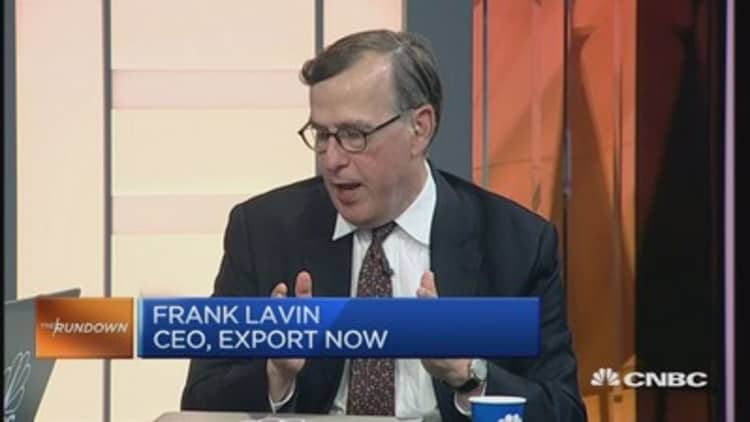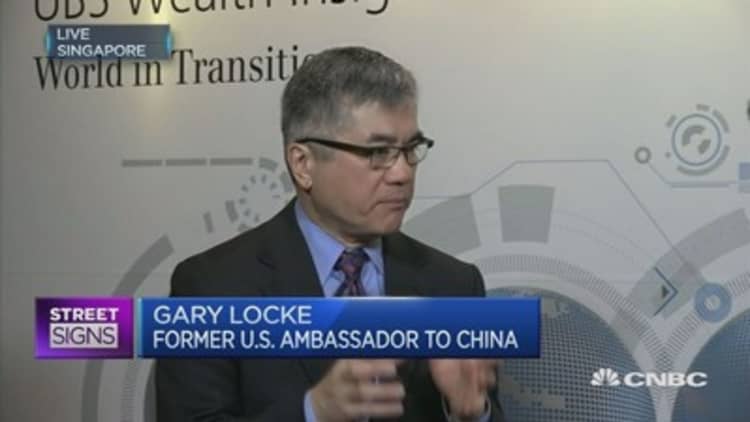
China's December exports fell 1.4 percent from a year earlier, while imports slid 7.6 percent, both much less than economists had expected but still likely consigning the economy to its weakest annual growth in 25 years.
That left the country with a trade surplus of $60.09 billion for the month, the General Administration of Customs said on Wednesday.
Economists surveyed by Reuters had anticipated exports and imports to fall 8 and 11.5 percent respectively.
It was the sixth straight on-year fall in exports, according to Dow Jones, and puts exports down 2.8 percent for the full year, compared to a rise of 6.1 percent in 2014.
Despite the world's current fixation on China's economy and its financial markets, some strategists caution against reading too much in the trade data.
"There's a lot of invoicing that changes in December as companies clean up their books. I just think you don't want to over interpret December numbers," Derek Scissors, resident scholar at American Enterprise Institute, told CNBC on Wednesday.
Still, Wednesday's report came ahead of key full-year gross domestic product (GDP) data due next week.
China's economy likely grew by around 7 percent in 2015, in line with the government's official target, the top economic planning agency said on Tuesday. Such a level would be the slowest pace of expansion in a quarter of a century, and down from 7.3 percent in 2014 as weak demand at home and abroad, industrial overcapacity and faltering investment drag on the world's second-largest economy.
Some China-watchers believe real growth levels are already much weaker than official data suggest, reinforcing expectations that the government will have to roll out more stimulus measures this year to avoid a hard landing for the economy.

Wednesday's data could also rekindle worries that Beijing may use competitive currency devaluation to bolster the export sector.
While Beijing has persistently denied weakening the yuan for competitive purposes, and aggressively intervened to prop up the yuan via offshore buying, its actions haven't reassured investors, who are concerned about the government's commitment to make its currency and stocks more market-oriented.
"The story over the last week and a half is that the leadership needs and wants a market economy, but they are not entirely comfortable with the volatility that brings, noted Frank Lavin, CEO at e-commerce platform Export Now. "Regulators are moving to a point now where credibility is an issue - whether they are jumping in too aggressively with contradictory messages - that in itself exacerbates the problem,"
—Follow CNBC International on Twitter and Facebook.

